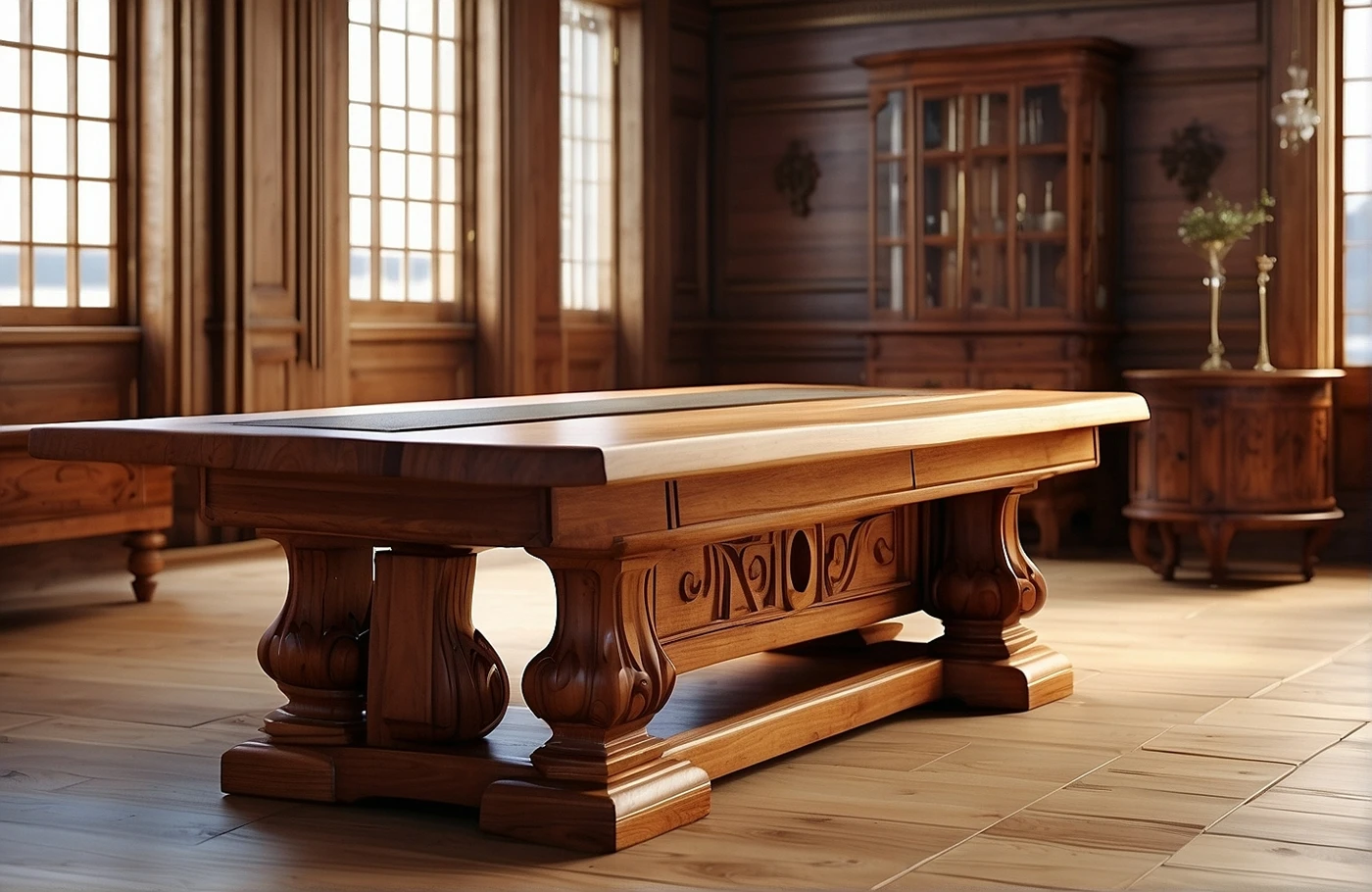How To Get Cat Pee Smell Out Of Hardwood Floors

Effective Methods to Remove Cat Pee Smell from Hardwood Floors
Cat Pee Smell on your beautiful hardwood floors can be quite an unpleasant experience. Whether you have a new kitten who's not yet litter box trained or a senior cat with accidents, it's essential to tackle the issue promptly and effectively. Here are some proven methods and tips to help you eliminate that stubborn cat pee smell from your hardwood floors.
Understanding the Problem
Before jumping into solutions, it's crucial to understand why cat pee is particularly challenging to remove from hardwood floors. Cat urine is not only smelly but also contains uric acid, which can crystallize and bind to the wood fibers, making it difficult to eliminate the odor completely.
Immediate Cleanup
As soon as you notice the accident, act fast to prevent the urine from seeping into the wood. Use paper towels to soak up as much liquid as possible. Avoid rubbing the area, as this can push the urine further into the wood. Once you've absorbed the liquid, rinse the area with water to dilute the urine.
Vinegar Solution
Vinegar is known for its ability to neutralize odors, including cat urine. Create a solution of one part white vinegar to one part water. Pour the mixture on the affected area and let it sit for a few minutes. Blot the area with a clean towel and repeat the process if necessary. The vinegar will help break down the uric acid crystals and eliminate the odor.
Baking Soda
Baking soda is another powerful ally in the fight against cat pee smell. After using the vinegar solution, sprinkle baking soda over the affected area. Let it sit for several hours or overnight to absorb any remaining odor. Vacuum the baking soda the next day, and you should notice a significant improvement in the smell.
Enzymatic Cleaners
For stubborn cat pee odors that just won't go away, consider using enzymatic cleaners. These cleaners contain enzymes that break down the uric acid crystals, effectively eliminating the odor. Follow the instructions on the product carefully and test it on a small, hidden area of your hardwood floor to ensure compatibility.
Sanding and Refinishing
If the cat pee smell has penetrated deep into the wood and all other methods have failed, you may need to resort to sanding and refinishing the affected area. This process involves sanding down the top layer of the wood to remove the odor-affected portion and then refinishing it to restore its original look.
Prevention Tips
To prevent future accidents and cat pee smells on your hardwood floors, ensure your cat has easy access to clean litter boxes at all times. Regularly clean and replace the litter, as some cats may avoid using a dirty litter box. Additionally, consider placing mats or trays under the litter boxes to catch any stray litter or accidents.
By following these effective methods and tips, you can successfully get rid of cat pee smell from your hardwood floors and maintain a fresh and clean home environment. Remember, patience and persistence are key when dealing with pet odors, so don't get discouraged if the smell doesn't vanish immediately.
Preventing Future Cat Urine Odors on Hardwood Surfaces
Cat urine odors on hardwood surfaces can be quite unpleasant and challenging to eliminate. Once you've successfully removed the existing odor, it's essential to take preventive measures to stop your feline friend from repeating the behavior. By implementing some simple strategies, you can minimize the chances of future incidents and keep your hardwood floors smelling fresh.
Understanding the Root Cause
To effectively prevent future cat urine odors on hardwood surfaces, it's crucial to understand why your cat may be urinating outside of the litter box. Cats may urinate outside the designated area due to various reasons, such as medical issues, stress, territorial marking, or dissatisfaction with the litter box's cleanliness. By addressing the root cause, you can work towards eliminating the behavior and preventing future accidents.
Providing Sufficient Litter Boxes
One of the primary reasons cats may urinate outside the litter box is because they are not satisfied with the available options. Ensure you have enough litter boxes in your home, ideally one per cat plus one extra. Place the litter boxes in quiet, easily accessible locations to encourage regular use. Keep the litter boxes clean by scooping them at least once a day and replacing the litter regularly.
Creating a Stress-Free Environment
Stress and anxiety can lead to inappropriate elimination in cats. Create a calm and enriching environment for your feline companion by providing scratching posts, toys, perches, and hiding spots. Establish a routine for feeding and playtime to give your cat a sense of security. If you have multiple cats, ensure they have space to retreat and have separate resources to prevent competition and conflicts.
Proper Cleaning and Odor Neutralization
In case of any accidents, it's crucial to clean the affected area promptly and thoroughly. Use enzymatic cleaners specifically designed to neutralize pet odors and discourage remarking. Avoid using ammonia-based cleaners, as they can amplify the urine scent, potentially attracting your cat back to the same spot. Test any cleaning product on a small, hidden area of your hardwood floors to ensure it doesn't cause damage.
Behavior Modification and Training
If your cat continues to exhibit inappropriate elimination behavior, consult with a veterinarian or a professional animal behaviorist for guidance. They can help identify underlying issues and recommend behavior modification techniques to address the problem effectively. Positive reinforcement, environmental enrichment, and desensitization strategies can aid in modifying your cat's behavior and preventing future accidents.
Consistent Monitoring and Vigilance
Keep a close eye on your cat's litter box habits and overall behavior. Monitor for any signs of stress, discomfort, or health issues that could contribute to inappropriate urination. By staying vigilant and addressing any concerns promptly, you can prevent potential relapses and maintain a harmonious environment for both you and your feline companion.
By taking proactive steps to address the root causes of inappropriate urination and implementing preventive measures, you can effectively reduce the chances of cat urine odors on your hardwood floors. Creating a cat-friendly environment, addressing any underlying issues, and maintaining cleanliness and hygiene will help you enjoy a fresh and odor-free home.
Understanding the Importance of Quick Cleanup for Cat Urine Accidents
Cat urine accidents on hardwood floors can be a challenging issue for pet owners. The strong and persistent smell of cat pee can linger and become quite unpleasant if not addressed promptly and properly. Understanding the importance of quick cleanup for cat urine accidents is crucial to maintaining a clean and odor-free home environment. Here are some effective strategies to get rid of the cat pee smell out of hardwood floors.
Importance of Quick Cleanup
Addressing cat urine accidents on hardwood floors promptly is essential to prevent the urine from seeping into the wood and causing long-term damage. The acidic nature of cat urine can stain and deteriorate the finish of the hardwood, leading to discoloration and unpleasant odors. Quick cleanup helps to minimize the extent of the damage and makes it easier to eliminate the odor effectively.
Step-by-Step Cleanup Process
-
Blot the Area: As soon as you notice a cat urine accident, use paper towels or a clean cloth to blot up as much urine as possible. Press down firmly to absorb the liquid without spreading it further.
-
Prepare a Cleaning Solution: Mix a solution of water and a mild detergent or a specialized pet urine cleaner. Avoid using harsh chemicals or ammonia-based cleaners, as they can worsen the smell and damage the wood.
-
Clean the Area: Use the cleaning solution to gently scrub the affected area of the hardwood floor. Make sure to reach into the crevices and gaps in the wood where urine may have seeped.
-
Rinse Thoroughly: After cleaning, rinse the area with clean water to remove any leftover cleaning solution. Wipe the floor dry with a clean cloth.
-
Use an Enzymatic Cleaner: To effectively eliminate the odor of cat urine, consider using an enzymatic cleaner specifically designed for pet accidents. These cleaners break down the uric acid crystals in the urine, targeting the source of the smell.
Additional Tips for Odor Removal
-
Baking Soda: Sprinkling baking soda over the cleaned area can help absorb any remaining odors. Leave it on for a few hours or overnight before vacuuming it up.
-
Vinegar Solution: A mixture of water and vinegar can be used as a natural deodorizer. Lightly spray the solution on the affected area and wipe it dry.
Preventive Measures
-
Litter Box Maintenance: Ensure your cat's litter box is clean and easily accessible to prevent accidents on hardwood floors.
-
Behavior Modification: Address any underlying issues that may be causing your cat to urinate outside the litter box, such as stress or medical conditions.
By understanding the importance of quick cleanup and following these effective strategies, you can successfully get rid of the cat pee smell out of hardwood floors and maintain a fresh and clean living space for you and your feline companion.
Using Natural Remedies to Eliminate Cat Urine Smells on Hardwood Floors
Cat owners know the struggle of dealing with the strong and persistent smell of cat urine on hardwood floors. Not only can it be unpleasant to live with, but it can also be challenging to remove completely. Fortunately, there are natural remedies that can help eliminate these odors effectively, without the need for harsh chemicals. By using simple ingredients that you likely already have at home, you can get rid of cat pee smells on hardwood floors for good.
Understanding the Problem
Before delving into the solutions, it's essential to understand why cat urine smells linger on hardwood floors. Cat urine contains strong-smelling uric acid, which can penetrate deep into the wood and be challenging to remove with regular cleaning alone. This is why the odor can persist even after mopping the floors multiple times.
Vinegar and Water Solution
One of the most effective natural remedies for eliminating cat urine smells on hardwood floors is a mixture of vinegar and water. Vinegar is known for its ability to neutralize odors, including those from cat urine. To create this solution, mix equal parts of water and white vinegar in a spray bottle. Lightly spray the solution on the affected area, allowing it to sit for a few minutes before wiping it away with a clean cloth.
Baking Soda Paste
Baking soda is another powerful ingredient that can help combat cat urine smells on hardwood floors. To create a baking soda paste, mix baking soda with a small amount of water until it forms a thick consistency. Apply the paste to the affected area and let it sit for several hours, allowing it to absorb the odor. Afterward, simply wipe away the dried paste with a damp cloth.
Hydrogen Peroxide and Dish Soap Solution
For more stubborn cat urine smells, a solution of hydrogen peroxide and dish soap can be highly effective. Mix a teaspoon of dish soap with a cup of hydrogen peroxide and apply it to the affected area. Allow the solution to sit for around 10-15 minutes before wiping it away. This powerful combination can help break down the uric acid in the cat urine, eliminating the odor at its source.
Activated Charcoal
Activated charcoal is a natural odor absorber that can help remove lingering smells from hardwood floors. Place activated charcoal briquettes in a shallow dish and position them near the affected area. Leave the charcoal in place for a few days to allow it to absorb the odors effectively.
Final Thoughts
Dealing with cat urine smells on hardwood floors can be a frustrating experience, but with the right natural remedies, you can eliminate these odors and enjoy a fresh-smelling home once again. By using simple ingredients like vinegar, baking soda, hydrogen peroxide, and activated charcoal, you can effectively tackle even the toughest cat urine odors without resorting to harsh chemicals. Try out these natural remedies and say goodbye to unpleasant smells for good.
Professional Cleaning Services for Stubborn Cat Pee Odors on Hardwood Floors
Cat urine odor on hardwood floors can be a challenging issue to tackle. When your furry friend leaves an unwelcome surprise on your beautiful hardwood floors, it not only leaves a stain but also a lingering odor that can be hard to eliminate. If you are struggling to get rid of the unpleasant smell of cat pee from your hardwood floors, seeking professional cleaning services may be the most effective solution.
The Importance of Professional Cleaning Services
Professional cleaning services have the expertise and specialized equipment to effectively remove stubborn cat pee odors from hardwood floors. They use advanced cleaning techniques that target not only the surface but also penetrate deep into the wood to eliminate the odor at its source. By enlisting the help of professionals, you can ensure that the job is done thoroughly and efficiently.
Advanced Techniques for Odor Removal
Professional cleaners utilize a range of advanced techniques to tackle stubborn cat urine odors on hardwood floors. One common method is enzymatic cleaners, which contain bacteria that feed on the organic matter in cat urine, effectively breaking down the odor-causing compounds. Additionally, professional cleaners may use specialized equipment such as ozone generators or thermal fogging to neutralize odors and freshen up the space.
Tailored Cleaning Solutions
Each case of cat pee odor on hardwood floors is unique, and professional cleaning services understand the importance of providing tailored solutions. They will assess the extent of the damage, the type of hardwood flooring, and any existing finishes to determine the most suitable cleaning approach. This personalized approach ensures that your hardwood floors are treated with care and that the odor is effectively eliminated.
Preventing Future Incidents
In addition to removing existing cat pee odors, professional cleaners can also provide valuable tips on preventing future incidents. They may recommend pet-friendly cleaning products to use on your hardwood floors, as well as offer advice on how to discourage your cat from using the same spot as a restroom. By addressing the root cause of the issue, you can avoid dealing with persistent cat pee odors in the future.
When it comes to stubborn cat pee odors on hardwood floors, professional cleaning services offer a reliable and effective solution. By entrusting the task to professionals, you can rest assured that your hardwood floors will be restored to their original condition, free from any lingering odors. Don't let cat urine odors detract from the beauty of your hardwood floors – seek the expertise of professional cleaners to get rid of the smell for good.
Conclusion
A blend of effective methods and preventive measures can help in ensuring your hardwood floors remain free of cat pee smell. Understanding the significance of prompt cleanup and taking proactive steps to prevent future incidents can go a long way in maintaining a fresh and odor-free environment in your home. With the help of natural remedies and the option of professional cleaning services, you can address stubborn cat pee odors on hardwood floors comprehensively.
When faced with the challenge of removing cat pee smell from hardwood floors, it is crucial to utilize effective methods that target both the stain and the odor. By using a combination of vinegar, baking soda, hydrogen peroxide, or enzyme-based cleaners, you can break down the uric acid crystals and eliminate the foul smell at its source. Additionally, steam cleaning and sunlight exposure can aid in further neutralizing the odor and restoring the natural freshness of your hardwood surfaces.
To prevent future cat urine odors on hardwood floors, it is essential to address the root cause of the behavior by ensuring your cat has access to clean litter boxes and a conducive environment. Regularly cleaning and maintaining the litter box, providing adequate stimulation and enrichment for your cat, and addressing any underlying health issues can help in curbing undesirable urination habits and preserving the integrity of your hardwood floors.
Understanding the importance of quick cleanup for cat urine accidents on hardwood surfaces is paramount in preventing lasting damage and pervasive odors. Immediate blotting of the affected area, followed by thorough cleaning with appropriate cleaning solutions, can help in minimizing the impact of the accident and preventing the urine from seeping into the wood and causing long-term odor issues.
Natural remedies offer a safe and eco-friendly alternative for eliminating cat urine smells on hardwood floors. Ingredients such as white vinegar, baking soda, lemon juice, or essential oils can be used to create homemade cleaning solutions that effectively neutralize odors without the use of harsh chemicals. These natural remedies not only help in combating cat pee smells but also contribute to a healthier indoor environment for both you and your feline companion.
In cases where stubborn cat pee odors persist despite your best efforts, seeking professional cleaning services may be necessary. Professional cleaners have the expertise, tools, and resources to tackle deep-seated odors and stains on hardwood floors, ensuring a thorough and lasting solution to the problem. By entrusting the task to professionals, you can rest assured that your hardwood floors will be restored to their former glory, free from the lingering reminders of past accidents.
By combining the effective methods, preventive strategies, quick cleanup practices, natural remedies, and the option of professional cleaning services, you can effectively combat cat pee smells on hardwood floors and maintain a fresh and inviting living space for you and your beloved feline companion. Prioritizing the cleanliness and odor control of your hardwood floors not only enhances the aesthetic appeal of your home but also contributes to a hygienic and comfortable environment for all inhabitants.



